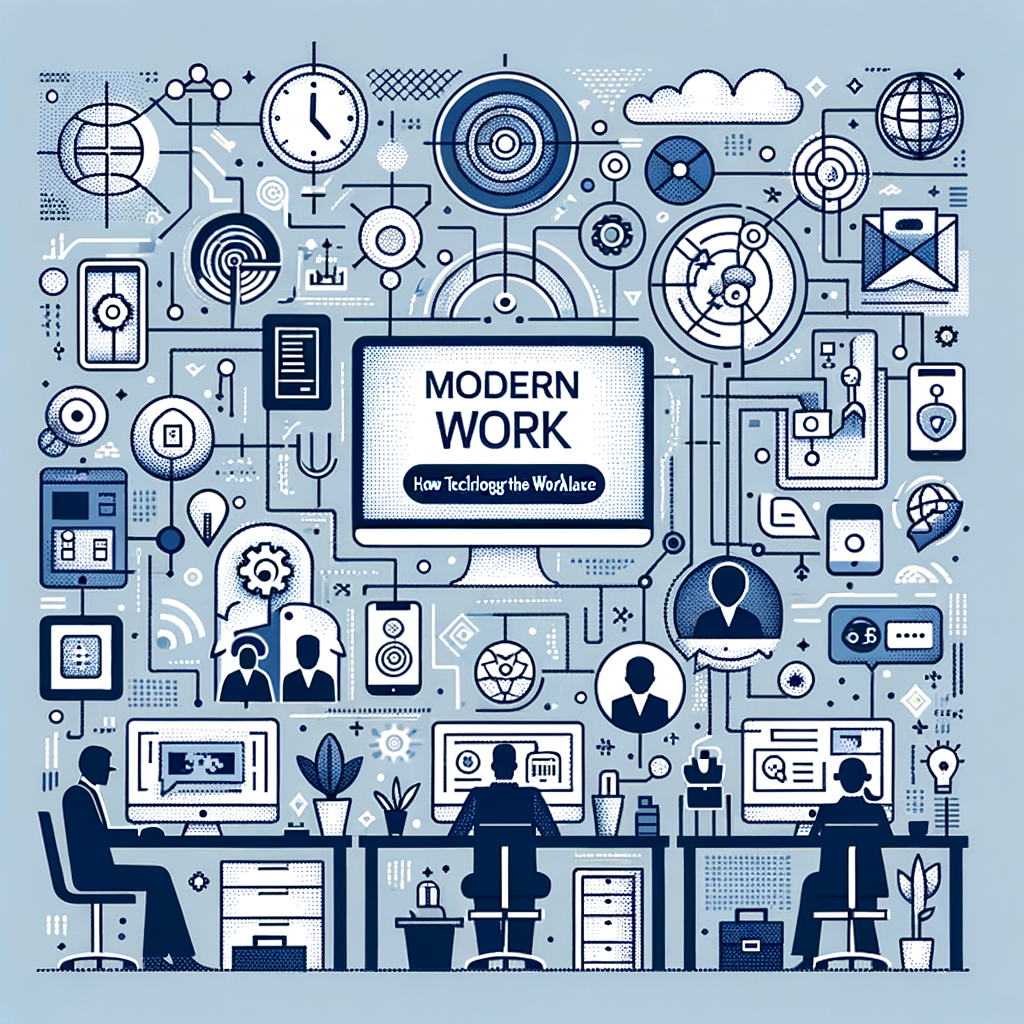How Technology Is Revolutionizing the Modern Workplace
The modern workplace looks very different compared to just a decade ago, thanks mainly to advances in digital tools and connectivity. Today, platforms like Microsoft Teams, Slack, and Zoom enable instant communication and seamless collaboration across time zones, making remote and hybrid work models not only possible but highly effective. Companies are leveraging artificial intelligence for simpler tasks such as scheduling, customer service, and even talent management, allowing employees to focus on more strategic work. According to a 2023 Gartner report, over 80% of organizations now use cloud services as a core part of their operations. This digital transformation is not just about adopting new gadgets—it’s about creating a culture of flexibility, innovation, and continuous learning, which empowers teams to thrive in a rapidly changing business landscape.

Key Benefits of Modern Workplace Technology
- Digital tools facilitate remote work and global collaboration, breaking down barriers to communication and talent access.
- Cloud platforms offer secure data storage and real-time document sharing, boosting productivity for diverse teams.
- AI-powered automation streamlines repetitive tasks, allowing employees to focus on creative and strategic responsibilities.
Practical Applications of Technology in Modern Workplaces
Employers today implement technology in the workplace not just for efficiency, but to foster collaboration, resilience, and innovation. For example, major corporations like Google and Deloitte use AI-driven analytics to optimize project management and predict employee engagement trends. Remote onboarding platforms allow new hires to become productive from anywhere in the world, bridging talent gaps across regions. Flexible scheduling applications empower teams to coordinate across time zones, while digital whiteboards make brainstorming seamless—even when participants are miles apart. Furthermore, advanced security protocols and cloud-based document management ensure sensitive information stays protected while remaining accessible to authorized team members. These practical applications show how forward-thinking companies are leveraging technology as a strategic asset, adapting to new challenges and driving continuous improvement across the organization.
Frequently Asked Questions
How does technology support remote work?
Technology enables seamless communication, easy file sharing, and video conferencing, so teams can collaborate efficiently from any location and maintain productivity.
What are the benefits of digital collaboration tools?
Digital collaboration tools
make teamwork more efficientby offering real-time document editing, instant messaging, and project tracking features, all within a secure environment.